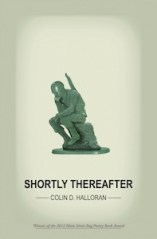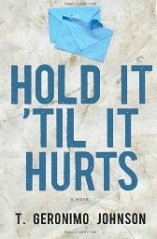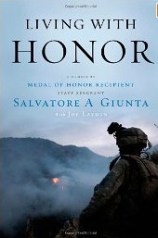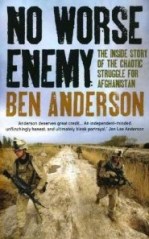A soldier reads aboard a C-17.
Though the publishing industry swears the market is oversaturated, books written by Iraq and Afghanistan veterans and by embedded journalists keep on coming.
And with good reason too – one, more than a decade of war means there’s a lot of stories to tell, and two, some are doing quite well, oversaturated market or no.
Two Iraq War-related novels, Billy Lynn’s Long Halftime Walk, by Ben Fountain, and The Yellow Birds, by Kevin Powers, were 2012 National Book Award finalists, for example. This year promises more of the same, with Lea Carpenter’s Eleven Days out in June, and Marine vet Phil Klay’s short-story collection out by the end of the year.
It’s a crowded space, and thus difficult to stand out, both in terms of quality and publicity. Here are four relatively recently-published books about our postmodern wars, written by two veterans, one journo and one civilian, that deserve your time, consideration, and perhaps some love from your Amazon holiday gift card. Don’t be shy – that cash dollar bling bling is there to be spent, dear reader:
Shortly Thereafter, by Colin Halloran — Like most prose writers, I’m hesitant to offer critiques on poetry, for fear of missing all those deep hidden something so prevalent in contemporary poetry. Iambic pentameter is a punch line for we damn dirty peons of language, not an actual technique to be (consciously) employed.
Luckily though, Halloran’s work is so good, his control of language so firm and restrained, I stopped being self-conscious while reading it and just allowed myself to become immersed in the nuanced, raw world he creates. Shortly Thereafter chronicles all the aspects of an Afghanistan deployment, from the terrors of the unknown that await before leaving, to the perverse thrills and adrenaline rushes found in combat, to the return home to a land and a people now more foreign than the war itself was.
Winner of the 2012 Main Street Rag Poetry Book Award, Halloran joins the wonderful Brian Turner as a lead bard of war poetry in this new American century. “We are not statues,” Halloran writes in the searing poem “Monuments,” originally published in The New York Times. “though our faces are stone/chiseled by time, shaped by history/that we are now part of/as it is part of us.”
Indeed.
Hold It ‘Til It Hurts, by T. Geronimo Johnson — This politically-charged novel came out last fall, about the same time as Powers’ and David Abrams’s Fobbit, and embraces the gritty realism often associated with vets’ narratives far more than those books did. (The former tilting poetic, the latter surrealistic, which is a bit ironic since both Powers and Abrams are Iraq vets.)
Johnson, who teaches writing at the University of California, Berkeley, clearly did his research, nailing the postwar struggle for soldiers now forever imbued with the instinct to strike first. Afghanistan is really just a backdrop for the wars on the homefront, and the big questions raised by race and identity crash into one another just as Hurricane Katrina bears down on New Orleans.
Though this is his first novel, Johnson avoids the classic pitfalls of many first-time novelists, not letting his language on a sentence level or grander thematic aspirations get in the way of his storytelling. And what a story he tells. I sincerely hope Johnson returns to writing about the military and/or veterans in the future; he gets it, in all its messy ambiguity, whatever “it” is.
Living With Honor, by Sal Giunta and Joe Layden — Of all the living recent Medal of Honor recipients, Sal Giunta is perhaps the most iconoclastic, staying out of the public eye as much as possible, and now that he’s out of the Army, showing up in an AWESOME (all caps) mustache and beard variations to official functions he’s required to attend.
Answers to how and why Giunta became the man he is today, a bona fide battle hero unafraid to express his discomfort with the pomp and ceremony associated with the Medal of Honor, can be found in these pages.
If you’re unfamiliar with Giunta and his story, I suggest you first educate yourself with his Medal of Honor citation here, and then keep reading about his journey from a Subway sandwich shop in Iowa, to the rugged mountainous war of Afghanistan, in Living with Honor. More than anything, it’s his genuineness and humility that will make you appreciate Giunta’s spirit and his memoir. If we as a nation are still capable of producing young men like him, we’re doing okay.
No Worse Enemy: The Inside Story of the Chaotic Struggle for Afghanistan, by Ben Anderson — Ben Anderson is one those renaissance men that seems to be able to do a lot of different things at once and succeed at all of them, be it as a television reporter, a documentarian, or romancer of world famous pop stars. (Who, you ask? The sultry and provocative M.I.A., according to Wikipedia, which never lies!).
Anderson can now add “critically-acclaimed author” to that list (Battleland interviewed him last fall). Anderson, who previously covered the Afghanistan surge in HBO’s documentary The Battle for Marjah, writes with a clear eye and an angry conscience, channeling the frustrations and confusion of soldiers and Marines charged with the often-contradictory orders of counterinsurgency.
Anderson does what the best embedded war journalists do: moving between the cracks and crevices of military bureaucracy and finding all that is dirty, ugly and true that lives there. It is not a hopeful book, which is fitting, as Afghanistan, in early 2013, is not a hopeful war – if such a thing can ever exist.






